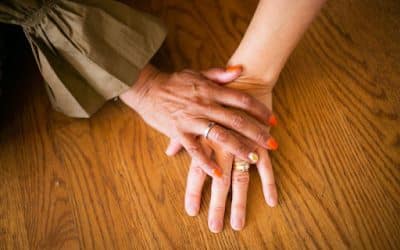I felt my ire rise when I read this article on CNN about how patients are giving their doctors headaches. Apparently, this video entitled “The Patient Who Knows Too Much”, which is part of a training program aimed at doctors to help them deal with “difficult patients,” has caused quite a stir.
Elizabeth Cohen, my friend and Senior Medical Correspondent at CNN writes about a fictitious patient named “Will,” who is represented by a nerdy-looking avatar holding a laptop computer, peppering his doctor with questions and information he has learned online about his disease. She writes:
In the presentation, three doctors comment on the challenges Will poses.
“They consider themselves an expert yet often their true medical knowledge is quite limited,” says Dr. Joseph Scherger, vice president for primary care at Eisenhower Medical Center in Rancho Mirage, California, who says patients like Will are “indiscriminate” about the material they read online.
“Patients who present their expertise as telling you how to practice medicine are implicitly discounting your expertise,” adds Leonard Haas, a psychologist at University of Utah School of Medicine.
“Sometimes these patients are very overweight. They’re out of shape,” Scherger adds. “They’re on the Internet all the time.”
When I read this, my blood started to boil and I had to do a little loving-kindness meditation aimed at doctors to calm myself down. So I’m about to rant, but hopefully, I’ll be more loving than I would have been a few minutes ago.
You’ve been properly warned.
How Dare They?
Even the title of that video is condescending – the patient who knows too much. After all, how can an empowered patient know too much?
As a physician, I know EXACTLY what kind of patient these doctors are talking about. They show up with ten pages of info they’ve downloaded off the internet, and some of it is from sites of questionable repute, often bordering on, or flat out stepping plainly into, propaganda.
When you’ve got ten minutes with the patient, as the physician, you may feel frustrated having to read, interpret, and explain what they’ve downloaded, especially if it goes against the treatment plan you’ve carefully crafted.
But That’s Your Job, Doc
I’m sorry. No offense, docs. But this is our JOB. We are teachers, healers, educators. It is our JOB to help our patients navigate their medical decisions with compassion, patience, and an open mind.
Our patients know their bodies better than we will ever know. We may have gone to school for a decade to learn about the human body, but we do not live in the body of our patients. Only they have the power to tap into their intuition and know what is best for them. And we are thwarting the process if we get in the way of that self-healing process.
Education Is Empowering
When you are sick – especially when you are sick with a rare disease – you may wind up knowing more about your illness than your doctor does. And more power to ya! It’s your body after all. Your doctor may not have time to go to the library and pull every article ever published about your rare condition, but you may be able to do that, and the internet makes it easier than ever to do so.
This is part of what I do in my medical practice. I work one-on-one with patients in extended sessions helping them navigate the scientific literature, answering their questions about what they’ve read on the internet, doing my own research and translating it into plain language for them in order to help them make the best decisions possible, advocating on their behalf and calling their own physician, if necessary, listening to their intuitive hunches, and empowering them to learn the tools necessary to heal themselves.
This service is desperately needed because so many doctors are dismissive of an empowered patient who wants to fully understand her health condition so she can make the best choice possible for herself.
An Empowered Choice
Take my patient – we’ll call her Eloise – who found out she carried the breast cancer gene (BRCA). The presence of this gene means she has a very high lifetime risk of developing breast cancer or ovarian cancer, so her doctor recommended that she have her breasts, ovaries, and uterus all hacked out.
She was like “Not so fast, buster.”
So we spent hours in sessions together, reviewing the medical literature, reviewing the alternatives, playing every possible scenario out to its best and worst possible outcome, tapping into Eloise’s intuitive wisdom about what was right for her, freeing her from the temptation to agree with her doctor, just so she could please him, and empowering her own self-healing mechanisms.
Eloise is very conservative, with a very low-risk threshold, so she got very clear from our sessions that she wanted to do everything possible to minimize her risk. She didn’t want to spend the rest of her life worrying about getting cancer, so she decided to get her breasts and ovaries removed, but after we reviewed the medical literature together, she chose to keep her uterus, even though her doctor recommended otherwise.
Some doctors might label Eloise as one of those “difficult patients,” who got a second opinion, did her research, and made a choice that differed from what her doctor recommended.
But for me, Eloise is my ideal patient. She abides by the kind of doctor-patient agreement I wrote about here. She’s educated, empowered, and accepting responsibility for her own health, rather than handing her power over to someone else and saying, “Fix me.”
Doctors, who get annoyed by patients who ask questions, second guess them, read stuff on the internet, and make their own decisions based on their own gut instinct, need to get off their high horses and get over themselves.
In Sacred Medicine, all patients will be like Eloise, and health care providers will cherish these kinds of patients who take an active interest in their own health care.
I’m here to lead the way into a vision of the future I see coming closer every day. I’m going to be writing a series of posts about Sacred Medicine, so make sure you’re on my newsletter list to keep up to join the movement and stay in the loop.
Can You See It?
Do you believe it’s good to be an educated patient? Are you gutsy enough to second guess your doctor when your gut tells you to make a different choice? Do you print stuff off the internet and bring it in with you? Do you question your doctor and make sure you understand and feel comfortable and agree with the treatment plan?
Tell me what you think!
Cheering for educated patients,
Enjoy this post? Subscribe here so you don’t miss the next one.




